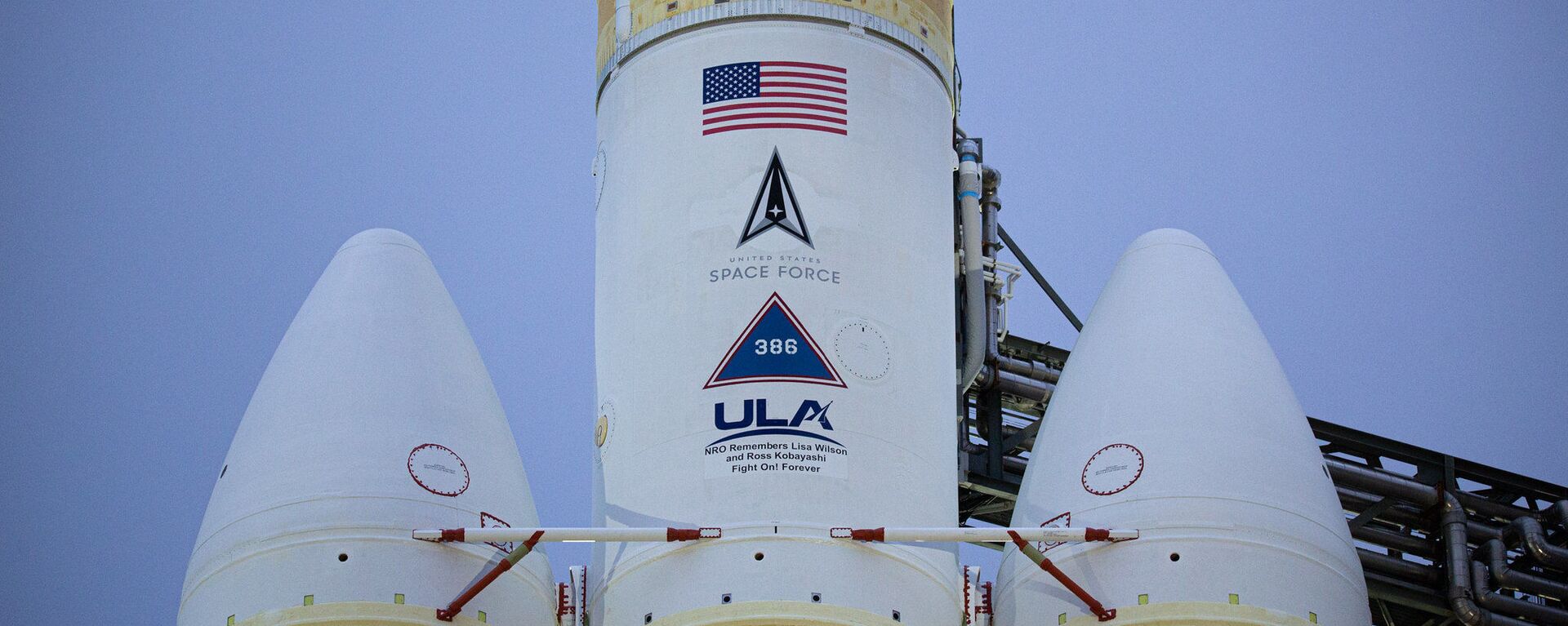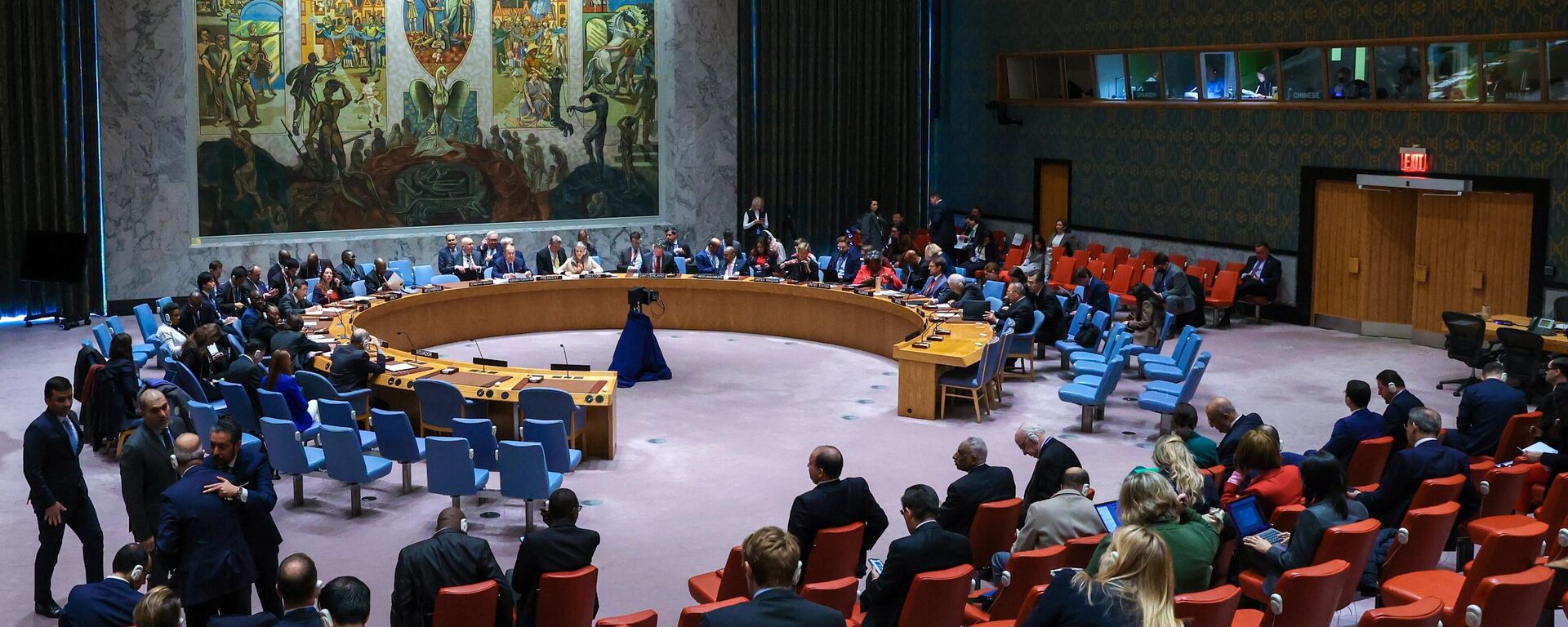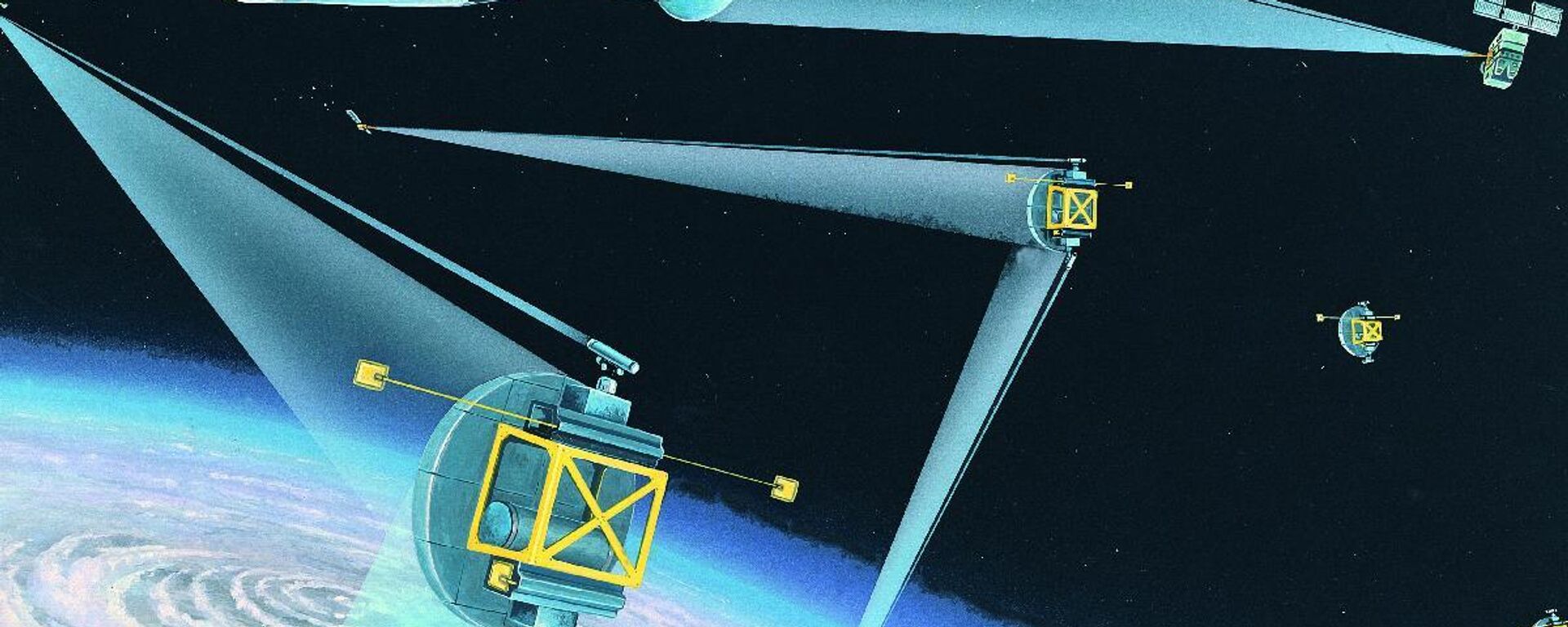https://sputnikglobe.com/20240514/congress-asks-pentagon-what-would-happen-if-nuke-were-detonated-in-space-1118432914.html
Congress Asks Pentagon What Would Happen if Nukes Were Detonated in Space
Congress Asks Pentagon What Would Happen if Nukes Were Detonated in Space
Sputnik International
DoD officials have accused Russia of secretly working on a space-based, nuclear antisatellite weapon. President Putin has stressed that Moscow is “categorically opposed” to the deployment of nuclear weapons in space, and urged all sides to adhere to their treaty obligations. Russia and the US have taken the matter to the United Nations.
2024-05-14T19:07+0000
2024-05-14T19:07+0000
2024-05-15T08:56+0000
military
vladimir putin
sergei shoigu
sergei ryabkov
russia
moscow
washington
congress
us department of defense (dod)
pentagon
https://cdn1.img.sputnikglobe.com/img/19315/07/193150790_0:0:1024:576_1920x0_80_0_0_9f2ecc30df1fd3a581a7efb5d77eebb4.jpg
House lawmakers have decided to turn the anti-Russia hysteria in Washington up another notch, adding a formal request for the Pentagon to make a formal assessment of what would happen if a nuclear weapon were detonated in outer space in a must-pass piece of defense legislation.“The committee is concerned about recent reports that Russia is developing a ‘space-based capability to attack satellites on-orbit using a nuclear weapon’. Further, the committee is concerned that if such an attack occurred, the blast would cause indiscriminate damage to systems in orbit. Therefore, the committee direct [sic] the Secretary of Defense, in coordination with the Administrator for Nuclear Security, to provide a report to the House Committee on Armed Services no later than February 28, 2025, on the impacts of a detonation of a nuclear weapon in space,” the request, buried inside the draft US National Defense Authorization Act for Fiscal Year 2025, urges.The request comes in the wake of a spate of reports in US media beginning in February citing senior officials about an alleged secret Russian program to developed a space-based nuke which can be detonated in space to decimate US satellite constellations using a powerful shockwave.President Putin emphasized that no such plans exist, saying Russia’s position on the matter has been “clear and transparent,” that Moscow has “always been categorically against the placement of nuclear weapons in space,” and that the US “knows” this.Outgoing Defense Minister Sergei Shoigu confirmed this information. “We haven’t deployed any nuclear weapons in space or any elements of them to use against satellites or to create fields where satellites can’t work efficiently,” Shoigu said at a meeting with Putin in February.The clamor in Washington regarding the alleged Russian ‘secret space nuke’ threat prompted President Biden to formally assure Americans that “there is no nuclear threat to the people of America or anywhere else in the world” stemming from Russia’s anti-satellite technology. Secretary of State Antony Blinken muddied the waters by saying that while “this is not an active capability,” it is a “potential one that we’re taking very, very seriously.”Russian Deputy Foreign Minister Sergei Ryabkov slammed reporting in US media that US officials had reached out to Moscow to “privately warn” Russia about its non-existent nuclear-anti-satellite weapon, telling reporters earlier this year that “there is no and cannot be any progress on this issue” because the American accusations are patently absurd to begin with.Ryabkov emphasized that Russia has no intentions of pulling out of the 1967 Outer Space Treaty, the document which bans the deployment of nuclear and other weapons of mass destruction in space.The Russia-US spat over space-based nukes has since expanded to the UN, where the two countries issued competing draft resolutions. The American resolution was vetoed by Russia last month on the grounds that it constituted a politicized “propaganda stunt,” and did not go far enough in banning all types of weapons in space. Moscow proposed a rival resolution which would not only stop the deployment of nuclear weapons in space, but prevent “the threat or use of force in outer space,” period.The US has regularly accused Russia of militarizing space while ramping up its own space-based warfare capabilities. The Trump administration formally established the Space Force as a separate branch of the US military in 2019, and has discussed openly the need to turn space into a new “warfighting domain.” Late last year, Marine Corps General Matthew Glavy said the US must “win the space domain” to win the wars of the future.Russia and China have been proposing a binding treaty prohibiting the deployment of weapons in space since the late 2000s, with the 2008 Proposed Prevention of an Arms Race in Outer Space (PAROS) Treaty offering a comprehensive space-based arms control agreement prohibiting the placement of weaponry, antisatellite and other advanced military technology in space.The US has rejected the agreement as a “diplomatic ploy” designed to give Moscow and Beijing a “military edge” over Washington.Russia and China have returned to the draft treaty repeatedly as a jumping off point for future negotiations.
https://sputnikglobe.com/20240506/russias-unsc-resolution-urges-states-to-negotiate-early-on-multilateral-space-agreements-1118295889.html
https://sputnikglobe.com/20240405/curious-timing-whats-behind-us-security-council-resolution-proposing-ban-on-nukes-in-space-1117767963.html
https://sputnikglobe.com/20240222/pentagons-new-military-satellite-program-poses-threat-to-russia-1116925932.html
russia
moscow
washington
Sputnik International
feedback@sputniknews.com
+74956456601
MIA „Rossiya Segodnya“
2024
News
en_EN
Sputnik International
feedback@sputniknews.com
+74956456601
MIA „Rossiya Segodnya“
Sputnik International
feedback@sputniknews.com
+74956456601
MIA „Rossiya Segodnya“
what would happen if a nuke were exploded in space, is russia planning to put nukes in space
what would happen if a nuke were exploded in space, is russia planning to put nukes in space
Congress Asks Pentagon What Would Happen if Nukes Were Detonated in Space
19:07 GMT 14.05.2024 (Updated: 08:56 GMT 15.05.2024) DoD officials have accused Russia of working on a secret, space-based, nuclear antisatellite weapon. President Putin has stressed that Moscow is “categorically opposed” to the deployment of nuclear weapons in space, and urged all sides to adhere to their treaty obligations. Russia and the US have taken the matter to the United Nations.
House lawmakers have decided to turn the anti-Russia hysteria in Washington up another notch, adding a formal request for the Pentagon to make a formal assessment of what would happen if a nuclear weapon were detonated in outer space in a must-pass piece of defense legislation.
“The committee is concerned about recent reports that Russia is developing a ‘space-based capability to attack satellites on-orbit using a nuclear weapon’. Further, the committee is concerned that if such an attack occurred, the blast would cause indiscriminate damage to systems in orbit. Therefore, the committee direct [sic] the Secretary of Defense, in coordination with the Administrator for Nuclear Security, to provide a report to the House Committee on Armed Services no later than February 28, 2025, on the impacts of a detonation of a nuclear weapon in space,” the request, buried inside the draft US National Defense Authorization Act for Fiscal Year 2025, urges. The request comes in the wake of a spate of reports in US media beginning in February citing senior officials about an
alleged secret Russian program to developed a space-based nuke which can be detonated in space to decimate US satellite constellations using a powerful shockwave.
President Putin
emphasized that no such plans exist, saying Russia’s position on the matter has been “clear and transparent,” that Moscow has “always been categorically against the placement of nuclear weapons in space,” and that the US “knows” this.
Outgoing Defense Minister Sergei Shoigu confirmed this information. “We haven’t deployed any nuclear weapons in space or any elements of them to use against satellites or to create fields where satellites can’t work efficiently,” Shoigu
said at a meeting with Putin in February.
The clamor in Washington regarding the alleged Russian ‘secret space nuke’ threat prompted President Biden to
formally assure Americans that “there is no nuclear threat to the people of America or anywhere else in the world” stemming from Russia’s anti-satellite technology. Secretary of State Antony Blinken muddied the waters by saying that while “this is not an active capability,” it is a “potential one that we’re taking very, very seriously.”
Russian Deputy Foreign Minister Sergei Ryabkov
slammed reporting in US media that US officials had reached out to Moscow to “privately warn” Russia about its non-existent nuclear-anti-satellite weapon, telling reporters earlier this year that “there is no and cannot be any progress on this issue” because the American accusations are patently absurd to begin with.
Ryabkov emphasized that Russia has no intentions of pulling out of the 1967 Outer Space Treaty, the document which bans the deployment of nuclear and other weapons of mass destruction in space.
The Russia-US spat over space-based nukes
has since expanded to the UN, where the two countries issued competing draft resolutions. The American resolution was vetoed by Russia last month on the grounds that it constituted a politicized “propaganda stunt,” and did not go far enough in banning all types of weapons in space. Moscow proposed a rival resolution which would not only stop the deployment of nuclear weapons in space, but prevent “the threat or use of force in outer space,” period.
The US has regularly accused Russia of militarizing space while ramping up its own space-based warfare capabilities. The Trump administration formally established the Space Force as a separate branch of the US military in 2019, and has discussed openly the need to turn space into a new “warfighting domain.” Late last year, Marine Corps General Matthew Glavy said the US
must “win the space domain” to win the wars of the future.
Russia and China have been proposing a binding treaty prohibiting the deployment of weapons in space since the late 2000s, with the 2008 Proposed Prevention of an Arms Race in Outer Space (PAROS) Treaty offering a comprehensive space-based arms control agreement prohibiting the placement of weaponry, antisatellite and other advanced military technology in space.
The US has rejected the agreement as a “diplomatic ploy” designed to give Moscow and Beijing a “military edge” over Washington.
Russia and China have returned to the draft treaty repeatedly as a jumping off point for future negotiations.

22 February 2024, 17:57 GMT





